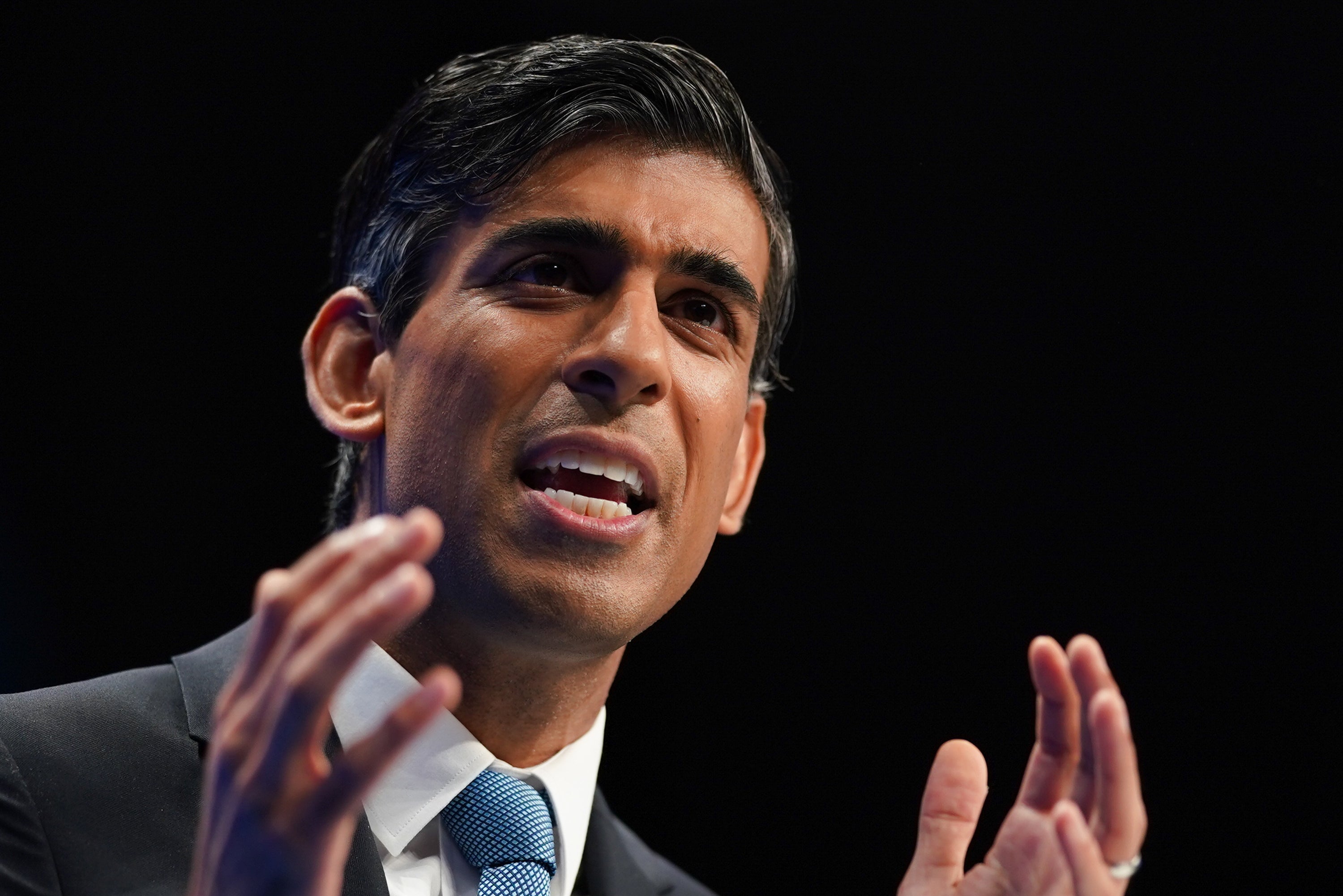Sunak will be ‘short of money’ despite historic tax rises, IFS warns
The combined effects of increasing spending on the NHS and a smaller-than-projected economy could leave the chancellor short of funds for public services, the think tank has said

Chancellor Rishi Sunak is likely to be “short of money” to spend on a number of public services despite a historic increase in taxes, the Institute for Fiscal Studies (IFS) has warned.
With the release of its 2021 Green Budget, the economic think tank said that the rising costs of healthcare across the UK’s ageing population were encroaching on the level of funds available for other services, including courts, prisons and local government.
The report found that the 1.25 percentage point increase in national insurance contributions to pay for extra spending on health and social care, announced last month by Boris Johnson, may need to be doubled by the end of the decade in order to meet future demographic pressures.
Meanwhile, the UK’s economy is expected to be smaller by the mid-2020s than it was projected to be before the pandemic, an analysis by Citi found. Contained within the Green Budget, the analysis estimated the UK’s economy would be between 2 and 3 per cent smaller in 2024-2025 than the previous estimate, because of the effects of Brexit and Covid-19.
Christian Schulz, Citi’s director of European economics, said: “The scarring just because of the pandemic may not be as large as we thought last year. The scarring due to Brexit may actually be larger.”
“Brexit is casting a long shadow over the economy,” he added.
The IFS also found that public spending was set to settle at 42 per cent of national income, which is more than 2 per cent above its pre-pandemic share, and the highest level of national income since 1985.
Under these conditions – a shrinking economy and a long-time high in public spending – the IFS does not expect the chancellor will have extra cash to offer “unprotected” Whitehall departments, including local government, further education, prisons and courts, when he delivers his budget later this month.
In fact, in order to meet his objective of achieving current budget balance and sticking to planned spending totals, Mr Sunak may be required to cut the day-to-day budgets of these departments by more than £2bn next year, the think tank said.
The IFS noted that these services had already been cut significantly in the 2010s, and a second round of reductions would prove difficult to reconcile with the government’s stated objective of “levelling up” the economy.
The think tank explored a number of scenarios in its forecasts of public finances and spending, but cautioned that uncertainty surrounding these projections remained “incredibly high”.
If the economy performs better than expected, the £28bn package of tax rises announced in the March 2021 budget may prove unnecessary for achieving current budget surpluses from 2023 onwards. In this case, Mr Sunak may abandon some proposed tax hikes or reduce other taxes, the IFS said.
However, if things go badly, those tax increases may need to be tripled to achieve a current budget surplus by 2025.
Paul Johnson, director of the IFS and editor of the Green Budget, said: “Rishi Sunak, a Conservative chancellor, is presiding over an increase in the tax burden to record levels in the UK and an increase in the size of the state to levels not seen since the days of Mrs Thatcher.
“Yet the combined effects of ever-growing spending on the NHS and an economy smaller than projected pre-pandemic mean that he is still likely to be short of money to spend on many other public services.
“On central forecasts, there will be little or no scope to increase spending on things like local government, the justice system and further education, after a decade of sharp cuts.
“That said, he still faces huge uncertainty over the direction of the economy and hence over the state of public finances.
“He will be hoping against hope that stronger-than-expected growth in revenues over the next few years will help to dig him out of what looks like a fair-sized hole,” added Mr Johnson.
A Treasury spokesperson said departmental budgets would be set out in the spending review, which will continue to reflect “the public’s key priorities”.
“Core departmental spending will grow in real terms over this parliament at nearly 4 per cent per year on average – a £140bn cash increase and the largest real-terms increase in overall departmental spending for any parliament this century,” the spokesperson added.
The IFS Green Budget 2021 was published ahead of the chancellor’s Budget and spending review, which are expected to be delivered on 27 October.
With additional reporting by PA
Join our commenting forum
Join thought-provoking conversations, follow other Independent readers and see their replies
Comments
Bookmark popover
Removed from bookmarks